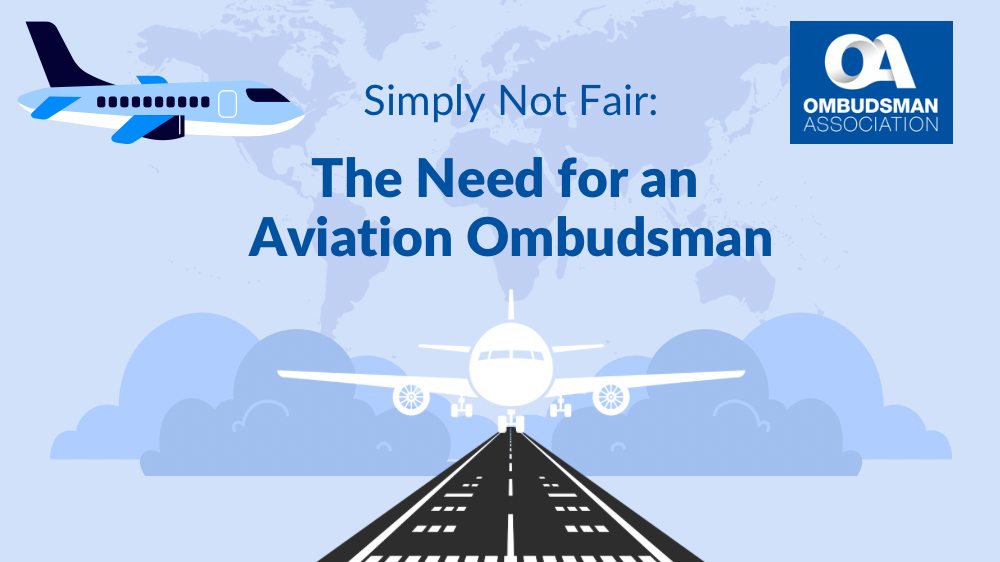Simply Not Fair: The Need for an Aviation Ombudsman

Flying can be a stressful experience, even more so if something goes wrong. And recent cases involving Ryanair have highlighted again the lack of consistent and effective redress for passengers.
The current system, which includes multiple competing dispute resolution schemes, does not deliver the protection and fairness that consumers deserve – and the approach of charging consumers a fee to access redress is an anomaly in the aviation sector that is incompatible with best practice on access to justice.
The Department for Transport stressed in their consultation on aviation consumer policy in 2022 that their aim was to ensure consumers are protected and treated fairly, and that best practice becomes commonplace in the aviation industry. The most effective way to achieve those aims and deliver the benefits for both consumers and the sector, is to have a single mandatory ombudsman that can deliver comprehensive and effective redress for all consumers and provide holistic feedback and learning to the sector to drive improvements.
In the latest example highlighted in the media, a family was charged £165 to check in at the airport, after the passenger had accidentally ‘unchecked’ his family online. In another example two passengers were charged £110 to print their tickets at the airport after mistakenly downloading their return tickets instead of their outgoing ones.
In both cases Ryanair had ‘adhered to their own Terms and Conditions’ - the fees were in line with their policy if someone fails to check-in online.
But as Rory Boland, editor of Which? Travel, has noted "It's clearly unfair to charge customers £165 to print out three pieces of paper for a genuine mistake”.
We’ve perhaps collectively failed in the past to clearly explain to policy makers, the media, and the public, what the difference is between basic ADR (alternative dispute resolution) and an ombudsman.
The basic, transactional approach to redress by some ADR bodies, one that simply picks ‘the winner’ in a dispute, results in the kind of decision that sees nothing wrong with charging £165 to print three pieces of paper, as long as it is ‘within the rules’.
An ombudsman on the other hand makes decisions based on what is fair. They take an inquisitorial approach when investigating, seeking further information and evidence when necessary and making recommendations for improvement in service provision, beyond simply resolving the individual dispute. An ombudsman drives systemic change, tackles injustice, and helps organisations to perform more efficiently and effectively.
We set out the problems with the current system and the need for an aviation ombudsman in our response to the Government's consultation in 2022.
We encourage the Department for Transport to re-prioritise their goal to ensure the protection and fair treatment for consumers in the aviation industry by implementing a single mandatory ombudsman. These issues are already addressed in other sectors by having a strong ombudsman working in tandem with a proactive regulator and we look forward to working with Government, the Civil Aviation Authority and other stakeholders to ensure that consumers have the same rights and access to redress that they have in other regulated sectors.
